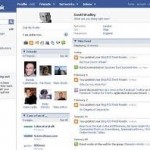 By Ron Benvenisti. Facebook proves to be incredibly dangerous to the safety of undercover police officers. Facial recognition and “photo tagging” put officers right in the crosshairs of the criminal entities they are trying to and already infiltrated. But don’t just take my word for it, even though I’ve been there on many cases in NYC as Special Investigator and Manager of Citywide Information Security: This is the finding of adjunct professor at ANU and Charles Sturt University in Australia. This is an international problem.
By Ron Benvenisti. Facebook proves to be incredibly dangerous to the safety of undercover police officers. Facial recognition and “photo tagging” put officers right in the crosshairs of the criminal entities they are trying to and already infiltrated. But don’t just take my word for it, even though I’ve been there on many cases in NYC as Special Investigator and Manager of Citywide Information Security: This is the finding of adjunct professor at ANU and Charles Sturt University in Australia. This is an international problem.
Former Australian Federal Police (AFP) commissioner Mick Keelty says that because of new converging technologies (like biometrics, for example) undercover policing may be “impossible” in the near future.
There are already significant safety risks for undercover policing when officers can be identified online. Commissioner Keelty comments on the complexity and sheer time it takes to place undercover police using conventional methods.
“You can’t just immerse an officer into a crime group; it takes up to seven years to get them into the right place [in the gang] where they can feed back the intelligence that you need,” Keelty said.
“Then there is the cost of doing that such as when law enforcement agencies target gangs or when governments across the world have entered into agreements to place critical witnesses in prosecution matters in different parts of the world to hide them.”
It’s time for police and security agencies to assess their policies with regards to the implications of social networking for their covert operations. Why is that?
In a survey taken of police and security agencies from December 2010 to February 2011, the results show that 90 per cent of female officers and 81 per cent of males were using social media exposing personal information including photos of themselves.
The most popular site was Facebook, with Twitter coming in second. 47 per cent of officers surveyed used social networking sites daily with 24 per cent using them weekly. All respondents who were aged 26 years or younger uploaded their photos onto the internet. What’s the age got to do with it?
Here Today, Here Tomorrow
The results mean that today’s 16 year-olds who might become officers in the future have already been exposed. Once it’s uploaded, it’s there forever.
85 per cent had their photos uploaded on to the internet by another person! Or so they say.
Facebook refused to remove photographs, but because of competition from Google+ it had started to remove photos at people’s request. But that doesn’t mean they are gone from the internet.
42 percent of respondents said it would be possible to identify their relationships with other people, including family and friends.
Lock and Don’t Upload
Someone in law enforcement who needs to preserve their anonymity for whatever reason, even if they remove their photos and other identifying info can easily be found through other relationships to find them.
Policy guidelines within local, state and federal police agencies need to address this right away to protect all their officers, not just those working undercover assignments.


Another good reason not to use Facebook etc. You never know, you might actually grow up to be the policeman you always wanted to be as a little kid!
@1 True. You never know. Case in point: Chassidic Detective Shlomo Koenig of the of the Rockland Sheriff’s Department Computer Crime Task Force. He was “2008 Outstanding Law Enforcement Officer of the Year” by the Secret Service and the U.S. Attorney’s Office in Miami!!! He had the full blessing of the Viznitzer Rebbe. My Rav in these matters was Avigdor Miller, ZTL.
This is why I don’t have a facebook page. It’s also a proven fact that a lot of Police Officers, Firefighters, EMTs and other professionals have been suspended, fired and sued over their facebook pages. These professionals don’t realize how dangerous it is to have a membership in these social media networks. It’s also been used by Human Resource staff to do background checks on future employees, there are many departments that want access and to be informed of your status within a social media network so they can perform these checks to determine if you are in good standards and worth being hired. So with that I say sorry to all my friends, relatives, classmates, etc…but I will remain anonymous and invisible to protect my career, family and to help me continue climbing the ladder of success without any complications from a social media network site.